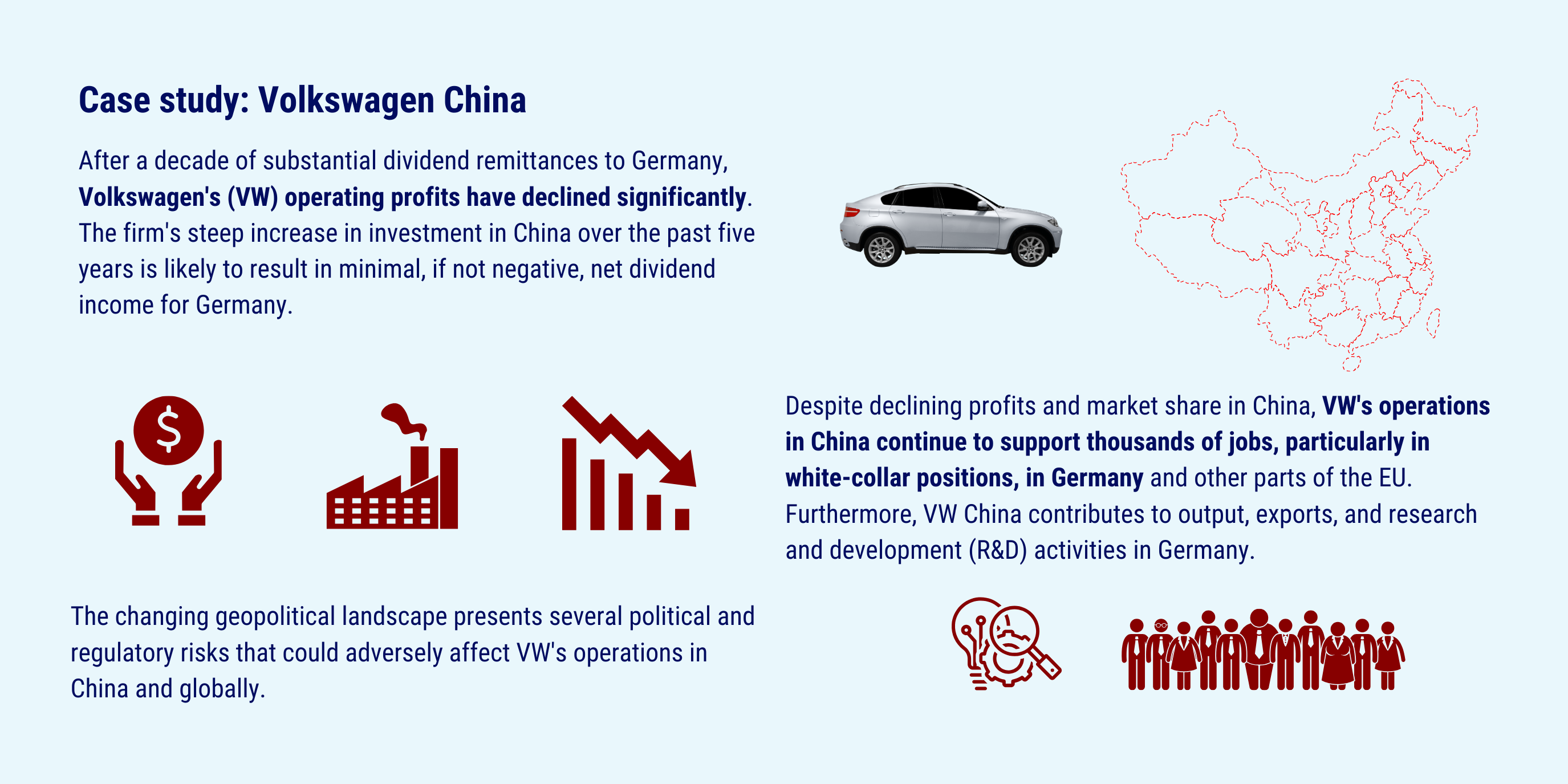The intensifying competition between European and Chinese firms, coupled with the deteriorating relations between China and the European Union (EU) in recent years, has prompted a re-evaluation of the benefits of European companies’ engagement in the People’s Republic of China (PRC). While these benefits can be analyzed from various perspectives, such as security, geopolitics, and technology transfer, it is essential to begin with a fundamental question: What are the benefits for European countries of European companies’ investments in China?
Executive summary:
- Academic studies indicate that outward foreign direct investment (OFDI) positively impacts domestic investment, employee compensation, and tax revenues in the home country. Research shows that a 10% increase in foreign employee compensation is linked to a 3.7% increase in domestic employee compensation, while a 10% rise in foreign investment corresponds to a 2.6% increase in domestic investment. Additionally, a 1% increase in OFDI results in a 0.013% increase in tax revenue.
- German firms’ profits from Chinese operations keep growing. Based on statistics from the German Central Bank and assuming similar profit and investment management patterns, European firms are projected to earn approximately €30 billion in profits in China in 2024, with around €12 billion repatriated to the EU as dividends.
- After a decade of substantial dividend remittances to Germany, Volkswagen’s (VW) operating profits have declined significantly. The firm’s steep increase in investment in China over the past five years is likely to result in minimal, if not negative, net dividend income for Germany.
- Despite declining profits and market share in China, VW’s operations in China continue to support thousands of jobs, particularly in white-collar positions, in Germany and other parts of the EU. Furthermore, VW China contributes to output, exports, and research and development (R&D) activities in Germany.
- The changing geopolitical landscape presents several political and regulatory risks that could adversely affect VW’s operations in China and globally. These challenges may arise from China, the EU, the United States, and other regions, and the severity of some risks may prompt VW to seek support from the German government. Contribution of European firms’ investments in China to European economies.
- Policy risk scenarios show that European firms in China operate in a highly volatile and risk-prone environment. A number of risks with a relatively high likelihood of occurrence could quickly erode the profits the firms make in China. While not all risks are expected to materialize, those that do will significantly alter the cost-benefit analysis of investments in China.
The post Contribution of European firms’ investments in China to European economies appeared first on CEIAS.



